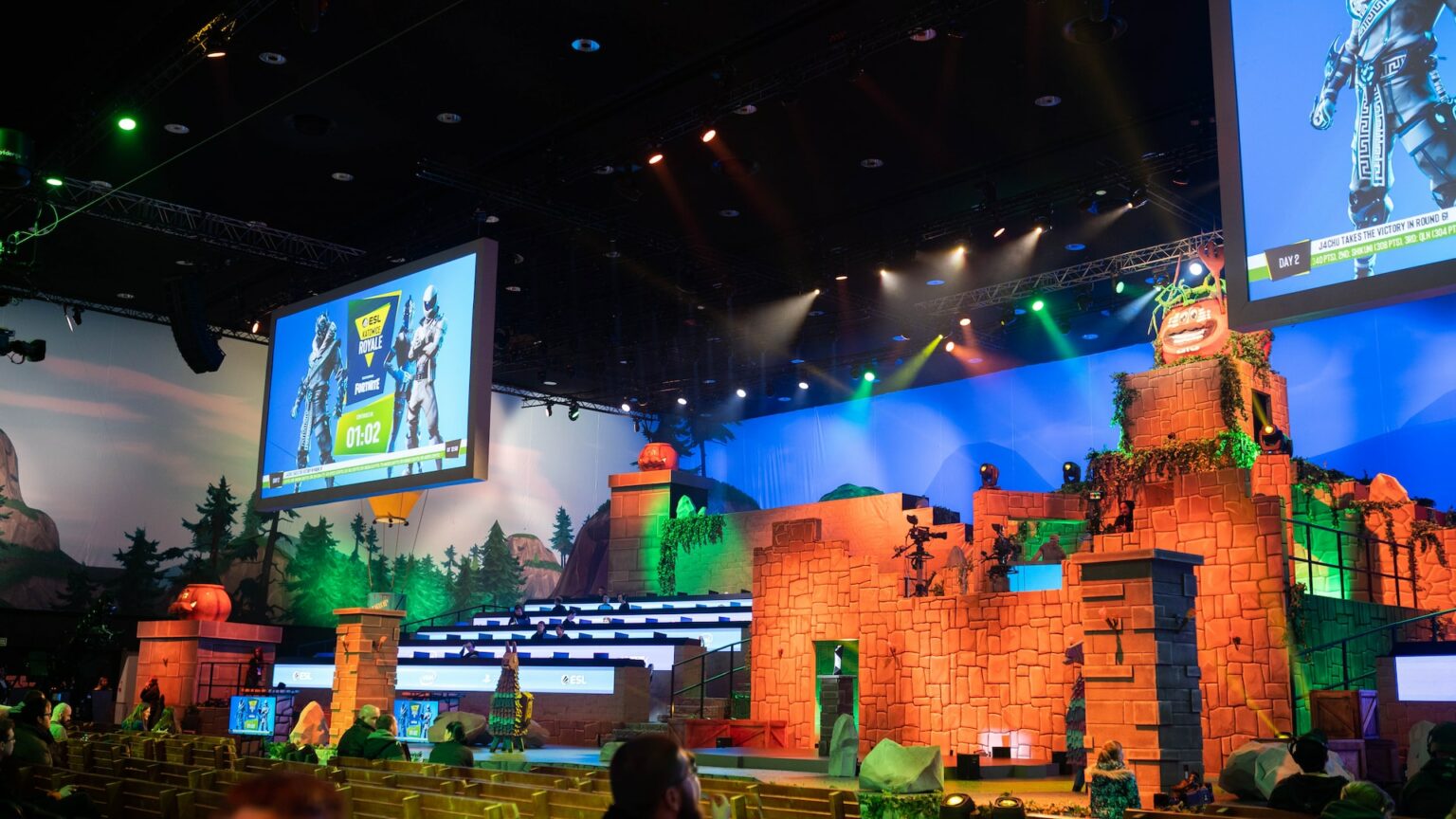Esports Sponsorships Introduction
Sponsorships in Esports are an integral part of the landscape, just as they are in traditional spectator sports. Esports is an exploding entertainment sector on pace to outstrip the film and television industry in terms of sheer economic activity. Sponsorship – in terms of volume and complexity – is one of the fastest-growing and effective marketing communication tools with respect to Esports.
Currently, there are more sponsorship opportunities at the team level compared to those for individual gamers/athletes. But as individual athletes grow their own fan bases, athlete-specific sponsorships opportunities are on the rise.
Whether in acting, music, or the traditional sports realm, the legal considerations for Esports sponsorships generally align with considerations for other forms of sponsorship for talent. This blog will look at a few of those overlapping considerations, as well as some of the considerations that are specific to Esports sponsorships.
General Considerations in Esports Sponsorships
In any sponsorship deal, the sponsored activity is one of the primary items to be clearly identified. For the sponsor, the scope of the activity and the obligations of the sponsored athlete (or musical artist, influencer, etc.) tied to the activity should be as broad as possible, whereas it is to the sponsored athlete’s benefit to limit the ambit of that activity as much as possible.
The activity could include participation at an in-person or online Esports event, wearing sponsored clothing, or using a sponsored product.

Join Our Community
Be the first to read new articles, industry news, and more. Sign up to our newsletter today!
Intellectual Property and Rights in Esports
The heart of any sponsorship agreement is the rights of association and all related rights that are granted to the sponsor. However, from the sponsored athlete’s perspective, it is important to limit those rights to ones that are necessary to carry out the sponsorship.
A sponsored athlete must deliver marketing and promotional value to the sponsor by its association with the sponsored athlete but wants to reserve any rights to itself not necessary to carry out the sponsorship. This helps the sponsored athlete maintain control of their brand and preserves potential future opportunities based on the rights it didn’t grant in a particular sponsorship.
One example is a sponsored athlete agreeing to appear at sponsored event and to allow promotion of that fact, but not granting the rights to film/record and make content for social media of their appearance at the event (unless of course, the sponsor is willing to pay more for that right).
Typically, a brand will want to be the “exclusive sponsor” associated with any sponsored athlete. But a sponsored athlete will generally want to try to limit the scope of that exclusivity, whether based on the territory that the exclusivity applies to (e.g. “Canada only”), or product category (e.g. “the exclusive energy drink sponsor”) and most definitely by the time period or term of the exclusivity.
The sponsored athlete will also need to grant the necessary sponsorship and other marketing and media rights for the sponsor to engage in all promotional activities contemplated in the agreement.
What Forms of Payment are Available?
Compensation generally comes in the form of a fee to a sponsored athlete, or the benefit derived by a sponsored athlete from a sponsorship arrangement. Fees are the most traditional form, but another common way to provide a benefit to the sponsored athlete is “in kind” consideration.
For example, a brand/sponsor may only provide free product (e.g. energy drink supplies) to an individual in exchange for some form of marketing or promotion by the sponsored athlete.
Often, there will be some combination of fee and “in kind” consideration provided for in the sponsorship agreement.
Esports Sponsors – Advertising and Promotion
In all sponsorship agreements, it is important to determine what advertising and promotional obligations a sponsored athlete takes on.
- What are their deliverables?
- Is it to use their social media platforms to amplify the brand the sponsor?
- How many times are they required to post to social, for example, during the duration of the agreement?
- Three times a week? Monthly?
- What messages are they going to put out on social?
- What level of approval does the sponsor have over the message being delivered through the channels?
Generally, as with other social media influencers like Esports athletes, the question of authenticity often comes up.
- Is the product or brand sponsoring anything the athlete would naturally be associated with or use?
- Is the product or brand off-base or disconnected from the athlete?
- If so, does the sponsorship ultimately do damage to the brand of both the athlete and the sponsor?
Specific Considerations for Esports Sponsorship Deals
Like all sponsorships in entertainment or in traditional sports, the timing of key events in a season will dictate how much urgency, and therefore, leverage an athlete has in negotiating a sponsorship deal.
For that reason, it is important that Esports advisors and lawyers know the key dates in an athlete’s season, as well as upcoming tournaments, and use these dates and potential results to parlay them into a better deal for the athlete.
What are “Break Clauses”?
All sponsorship agreements can potentially contain a “break” clause which allows one of the parties to terminate the agreement early in specific situations.
A specific application of a break clause to an Esports sponsorship may provide a right to terminate a sponsorship in favour of the sponsored athlete if the athlete misses an event or fails to reach a particular threshold (e.g., not making it through to the next round of a gaming tournament).
More athlete-friendly break clauses may provide for an athlete to terminate a sponsorship without further obligation where a sponsor loses its official status with a particular league, or it may instead provide that a sponsor loses their renewal rights under the agreement.
Esports-Specific Payment Considerations
Again, the level and timing of payments are important in all sponsorship arrangements. How much of the sponsorship fee is paid upfront versus paid over specified milestones? Additionally, how much of the compensation is contingent on the sponsored athlete reaching certain thresholds?
Events can often act as triggers for payments to sponsored athletes, which acts as a hold back on sponsorship fees until closer to the time that a sponsored athlete is scheduled to receive the benefits of the sponsorship arrangement.
This allows for payments and cashflow to occur at a time closer to when the promotional benefits provided by athletes are realized when based on events (e.g. the League of Legends World Championships), rather than dates in the future. In Esports, payments schedules and thresholds are often determined based on the last fixture in a tournament, which provides incentive for an athlete to continue providing benefits to the sponsor until the tournament is over, regardless of their involvement in the last fixture.
For help with your esports sponsorship agreement, whether as a sponsor, or as someone receiving a sponsorship opportunity, or sponsorship generally, please get in contact with us. We are happy to help!
© 2023 Edwards Creative Law, LLP – Updated to May 24, 2023
Edwards Creative Law is Canada’s Entertainment Law Boutique™, providing legal services to Canadians, and international clients who partner with Canadians, in the Film & Television, Music, Video Games and Apps, Publishing and Literary industries.
For more information or to set up a minute Discovery Call with one of our entertainment lawyers please feel free to Contact Us.
* This blog is for general informational purposes only and is not to be construed as legal advice. Please contact Edwards Creative Law or another lawyer, if you wish to apply these concepts to your specific circumstances.
Check out our popular blog posts:
Neighbouring Rights in Canada – Being a Musician is a Business
Setting up a Music Publishing Company in Canada
Copyright Protection & Classical Music
Work Made for Hire Explained
10 Co-Production Considerations in Canada – Ask an Entertainment Lawyer
Film Profits & Points – Ask an Entertainment Lawyer
The “Just Trust Me” Legal Agreement
Learn more about our services:
Film and Television Law
Music Law
Video Game and App Law
Publishing and Literary Law
Employment Law
Dispute Resolution and Litigation Law
Corporate Law
International Services




